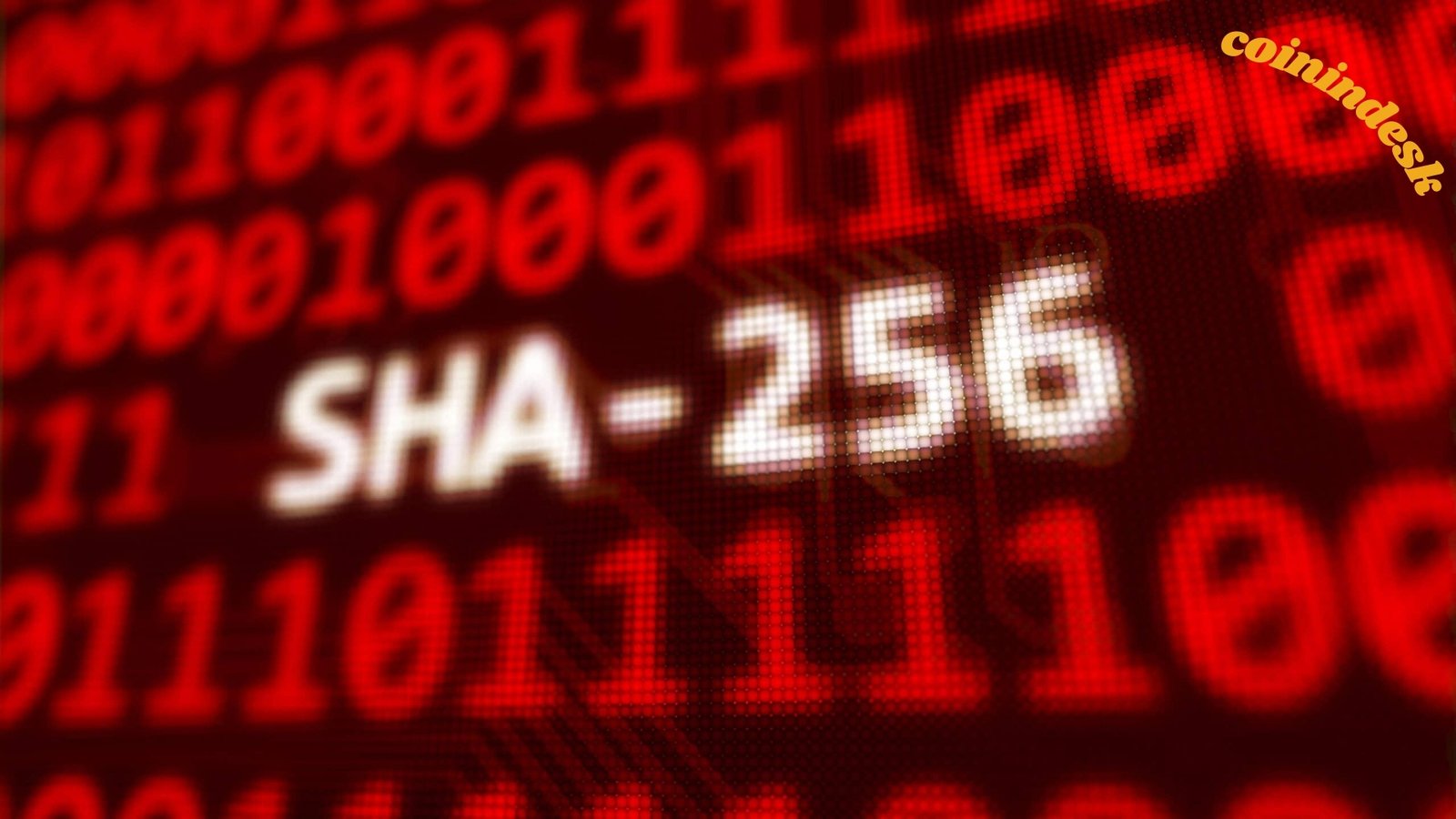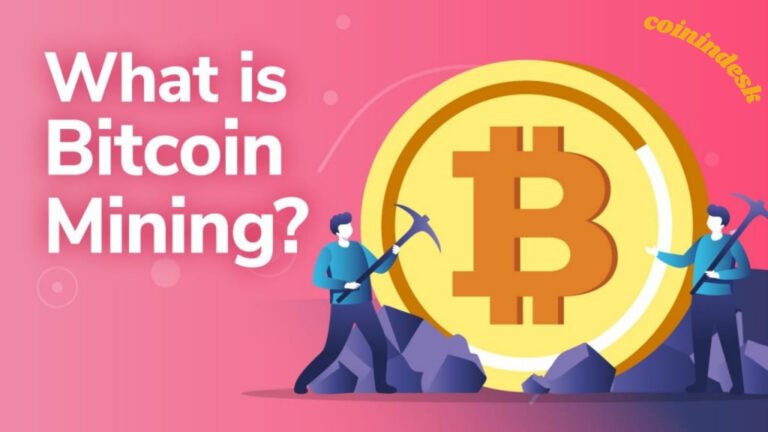What Is Bitcoin Mining? Bitcoin has a maximum quantity of 21 million coins, but there are presently only roughly 17 million in circulation, according to Coinindesk, our crypto research portal. The technique that will produce those four million additional coins over the next several decades is mining, which is how new Bitcoins are created.
Nevertheless, that is merely a portion of Bitcoin mining. This article will address all your questions about mining, including what it is, how it works, andWhether you should become involved, as it is a vital part of the Bitcoin network’s transaction processing.
What Is Mining and How Does It Work?
To give some context, the blockchain is a comprehensive record of all Bitcoin transactions starting from its inception in 2009 that has been kept by the network in order to prevent fraud. A fresh batch of transactions, or a block, is sent to the blockchain at regular intervals of around ten minutes. To make sure the transactions in newly produced blocks are legitimate, other network users can check them against their records.
Anybody could theoretically create a new block and publish it to the Bitcoin network, which would slow down the system as a whole. To avoid this, each block includes a cryptographic problem designed to be highly difficult to solve but easily verified by others. From a technical perspective, mining entails deciphering these riddles.
Then, how exactly does mining produce Bitcoin? The network pays miners 12.5 Bitcoins for their computational power whenever they successfully mine a block that the entire network accepts.
Miners receive 12.5 Bitcoins as an incentive, with the supply of new currencies being divided in half every four years. They also get a cut of the fees paid for the transactions in the block.
Including fees in Bitcoin transactions is completely voluntary, although most users do so to incentivize miners to complete transactions more quickly.
The Bitcoin Hashing Algorithm

To create these cryptographic puzzles, the Bitcoin network uses a hashing algorithm called “SHA-256” to digest a block’s data into an intimidating string of numbers and letters – called a hash, such as
- ba7816bfÂ8f01cfeaÂ414140deÂ5dae2223Âb00361a3Â96177a9cÂb410ff61Âf20015ad,
which is the corresponding hash for the three letters “ABC.”
Next, to solve the problem, miners must append a nonce, which is a random piece of information, to the data in the block. This alters the hash generated into one that begins with numerous zeros. Getting the nonce right requires a lot of trial and error, but the payoff is worth it. If no miner can solve the problem, a new block is generated and repeated.
Mining Pools
Finding the right nonce for a block is very unlikely, even though it doesn’t sound too difficult. Because of this, solo miners’ income from mining is highly uncertain since they rarely solve blocks by themselves. The solution to this dilemma is mining pools. These miners work together to solve blocks and share the benefits if they succeed.
Difficulty
The Bitcoin network can adjust the difficulty of solving blocks based on the hash rate, which measures the amount of computer power used for mining at any given moment. Completing the approval hash with a certain number of zeros indicates the level of difficulty. The network changes the difficulty so that blocks resolve themselves approximately every 10 minutes to prevent a transaction backlog if miners stop working.
Should I Mine Bitcoin?

Mining Bitcoin might sound like free money, but it turns out that mining involves quite a few variables and only makes sense for some. The key factors in deciding whether or not to mine Bitcoin are:
- Difficulty: When mining difficulty is high, your odds of successfully mining a Bitcoin decrease, along with your share of the profits from mining pools.
- Computing power: Only the most powerful computers and mining devices are good for solving blocks, so you’ll need to own or invest in one to succeed with mining.
- Electricity cost: Running a computer or dedicated mining device constantly can use a lot of electricity. The resulting electricity bills are often what kill small mining operations.
- Current Bitcoin price: The higher the price per bitcoin, the more you’ll earn from mining. However, as the Bitcoin price rises, more people start mining, and difficulty increases too.
If you want to see whether mining will be profitable, you can use a calculator such as WhatToMine to enter details about yours. Computer or mining devices, power consumption, and electricity costs.
How Do I Mine Bitcoin?
If you are interested in mining Bitcoin, you might be asking what the first steps are after doing the math. So, to help you out, we have put together this mini-guide on Bitcoin mining:
For Computer
It only takes a single click to begin mining and earning Bitcoin since most mining software already supports mining pools. Depending on your mining software, you might need to configure or choose a pool.
Smart mining software like GamerHash can automatically switch between mining the most profitable coins, so you may focus on. Digital currency that brings you joy, such as Bitcoin.
For Mining Devices
In addition, you might invest in your mining company by buying specialized cryptocurrency miners. These gadgets may be expensive up front, but they. Will save you money on electricity bills and boost your profits in the long run. We have faith that the manufacturer of your device will provide an easy-to-follow setup guide, while we acknowledge that the exact process might differ widely.


